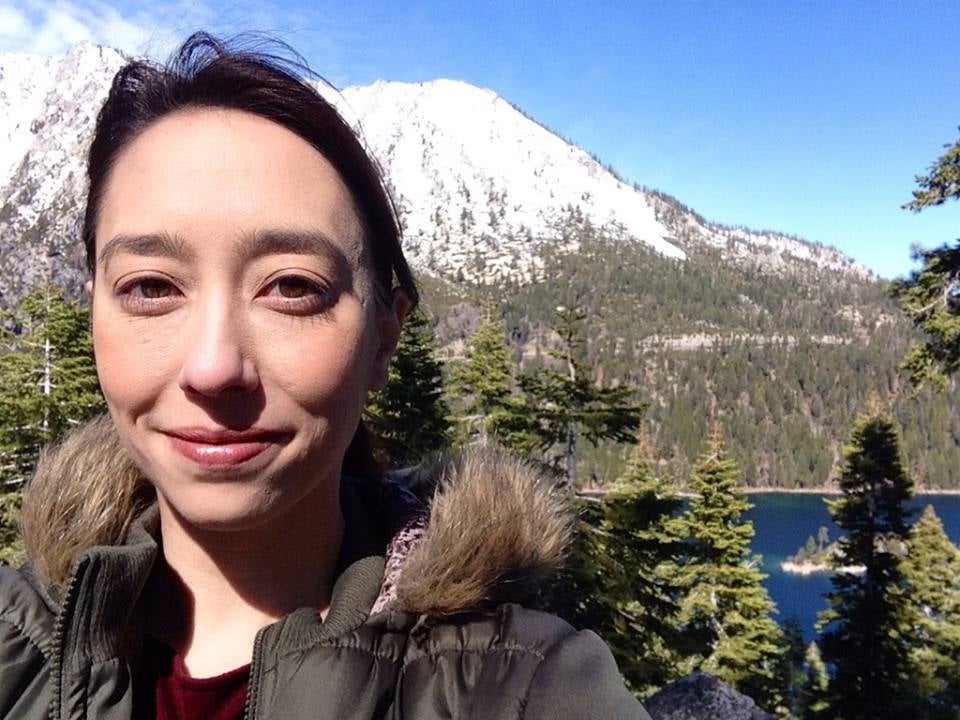Margot Finn | Lecturer, University Courses Division
Date: March 2016
When she isn’t teaching, Dr. Margot Finn can be found watching movies and reading IMDb. This isn’t your usual binge-watch—she analyzes mass media text in order to understand the U.S. food movement from the 1970s to the present. In our recent interview, she shares her insight on the intersection of food and culture.
 Where did you grow up? I was born in western Nebraska, but mostly grew up in the suburbs of Chicago.
Where did you grow up? I was born in western Nebraska, but mostly grew up in the suburbs of Chicago.
What is your strongest food memory? My mom is a great cook and we cooked together a lot when I was a kid. One weekend when my dad was out of town, my mom decided to make an ice cream roll cake for his birthday. As my mom was on the final step, the cake completely fell apart and she collapsed into tears. Since the surprise cake was ruined, we decided to make the best of it. We grabbed forks, sat on the kitchen floor, and ate the cake out of the pan while the clock struck midnight.
Have any particular books, articles or documentaries had a significant impact on you? Rachel Laudan’s Cuisine and Empire traces the history of the five major world cuisines and dispels the myths we often hold concerning food. Historically, people mostly subsisted on grain porridge, and they had to deal with food shortages and food poisoning. Industrialization of the food system made people’s lives much better, and our demonization of the industrialized food system is short sighted.
The documentary Why are Thin People Not Fat? chronicles an overfeeding study of thin people. The film provides insight into the complexities of weight loss and weight gain.
What are you currently reading? I’m reading White Bread: A Social History of the Store-Bought Loaf by Aaron Borrow-Strain. The book explores how bread has been implemented in social issues, such as the women’s movement, healthism, and the stigmatization of poverty.
What brought you to UM? I started a Ph.D. in Literature at NYU in 2003, and then decided it wasn’t right for me. In 2004, I transferred to UM to start a Ph.D. in American Culture. After I finished my dissertation, I received an opportunity to teach at UM.
Tell us about your current research interests. I am interested in how people come to believe the things they do about food and how these beliefs change over time. I study the U.S. food movement from the 1970s to the present, though my work often references the gilded age (1890s to 1920s) as a historical comparison.
I mostly end up looking at mass media—so I spend a large part of my day watching movies and reading IMDb. My analysis is of mass media text (movies, television shows) and how people respond to mass media (online comments, blog posts). I look for patterns in stories and how audiences perceive the message. For example, Ratatouille and The Biggest Loser tell us that taste and the body are projects that we can control—but what do audiences members say about this?
How do you like to spend your time when you’re not researching/teaching/working? As a new mom, I spend a lot of time breastfeeding my one-month old. I also enjoy long walks, hikes, backpacking with my husband and friends, reading fiction, watching professional wrestling, gardening, canning, and baking bread.
Do you have any advice for students interested in food systems careers? Find people that are doing the work you want to do and schedule an informational interview with them. Ask lots of questions: “What do their jobs involve?”; “What do they wish they would have done differently?”. No matter the field, I’ve found that people often wish they had taken art history and practical classes like accounting.
What classes are you teaching in Fall 2016? As part of the Food Citizenship Project, I’ll be teaching a new PiTE freshman seminar course that looks at different aspects of the food system and engages students in experiential learning activities. I’m also teaching a seminar course on controversies surrounding obesity (UC 254: Obesity: The Science, Culture, and Politics of Fatness in America), and a food studies research methods class (Environ 302/UC 370: The Measure of Our Meals: Food Studies Research Methods) that covers life science analysis, ethnography, mass media analysis, and historical accounts.



